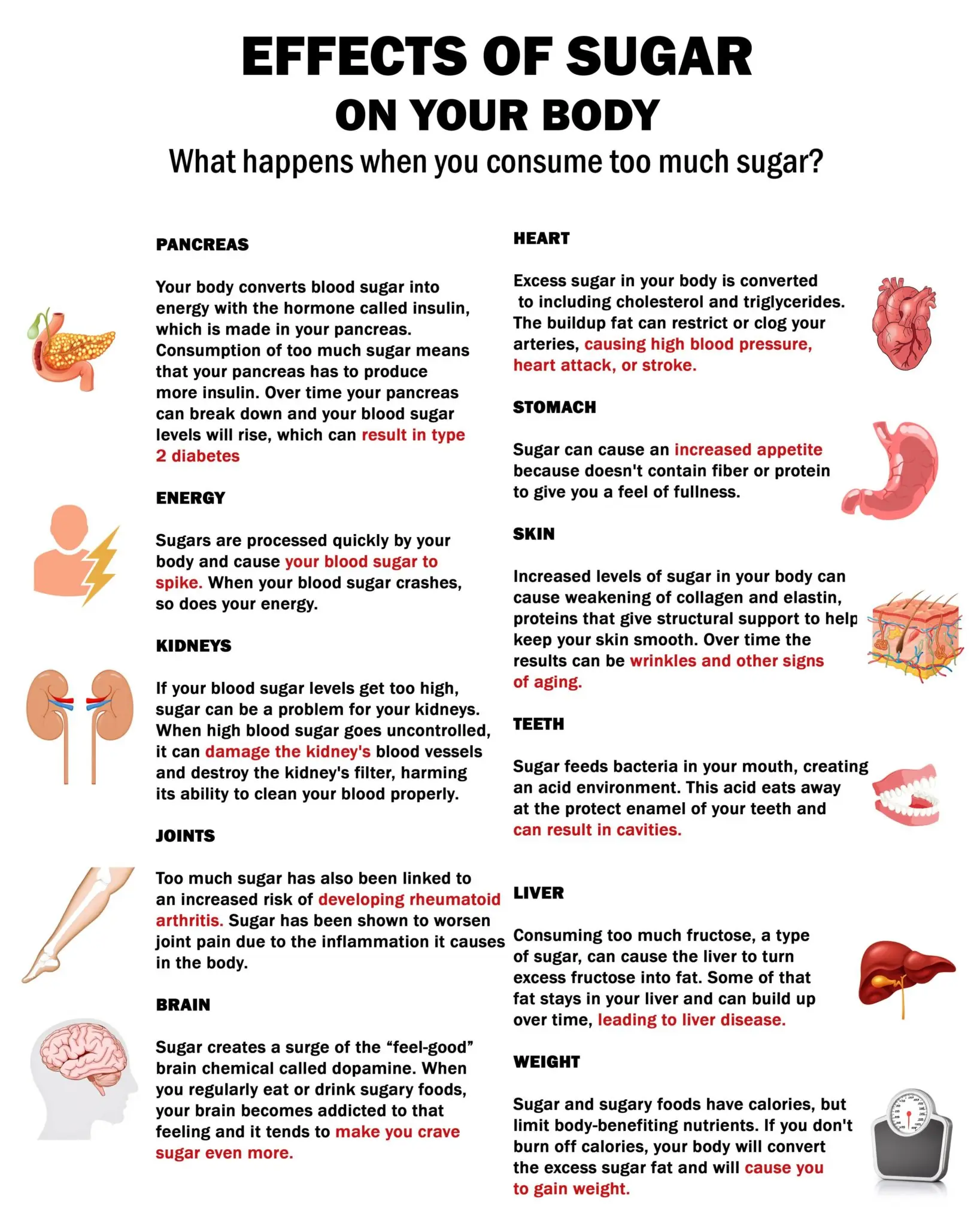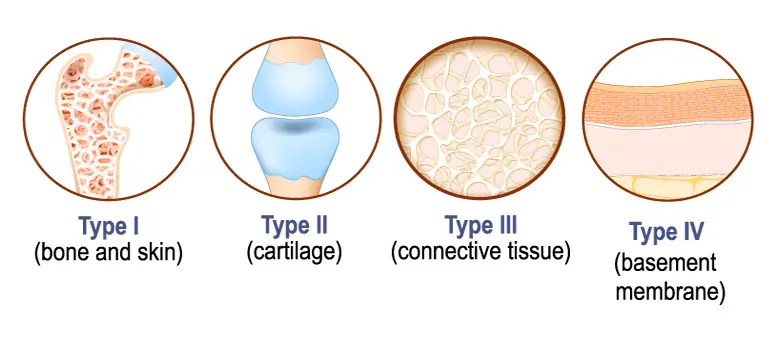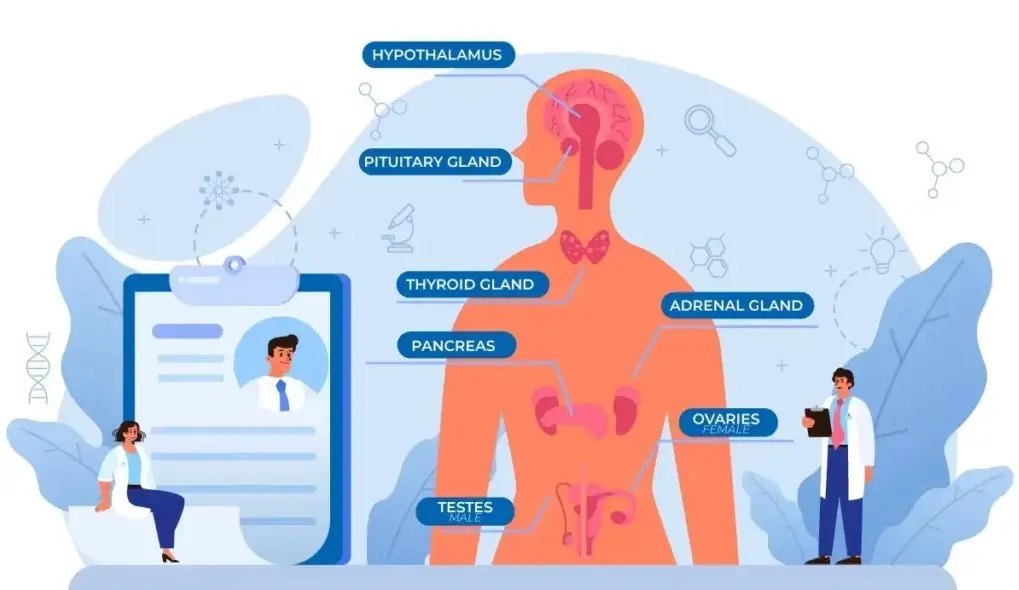
10 Brilliant and Budget-Friendly Pet Hacks to Make Life Easier
Caring for pets doesn’t have to be expensive or stressful—these 10 easy hacks make life better for you and your furry friends!
Sugar is everywhere—from your morning coffee to packaged snacks—and while it tastes great, consuming too much sugar can have serious consequences on your health. This article explores how excess sugar affects different parts of your body and offers insights to help you manage your intake for better overall wellness.
1. Pancreas: The Insulin Factory Under Strain
Your pancreas produces insulin, a hormone that helps convert blood sugar into energy. Eating too much sugar forces your pancreas to work overtime producing insulin. Over time, this strain can impair pancreatic function, leading to elevated blood sugar levels and increasing the risk of type 2 diabetes.
2. Energy Levels: The Sugar Rollercoaster
Sugars are rapidly absorbed, causing a spike in blood glucose followed by a sharp drop (crash). This fluctuation leads to feelings of temporary energy followed by fatigue, irritability, and difficulty concentrating.
3. Kidneys: Filtering Under Pressure
Uncontrolled high blood sugar can damage the delicate blood vessels in the kidneys. This impairs their ability to filter waste, potentially leading to kidney disease or failure.
4. Joints: Inflammation and Pain
Excess sugar contributes to systemic inflammation, which worsens joint pain and is linked to a higher risk of rheumatoid arthritis. Reducing sugar can help lower inflammation and improve joint comfort.
5. Brain: Sugar Addiction and Cravings
Sugar consumption triggers dopamine release—the brain’s “feel-good” neurotransmitter. Frequent sugar intake can cause addiction-like cravings, making it difficult to cut back despite knowing its harms.
6. Heart: Fat Buildup and Cardiovascular Risk
Excess sugar is converted into fats such as triglycerides and cholesterol, which accumulate in arteries. This buildup raises the risk of high blood pressure, heart attacks, and strokes.
7. Stomach: Increased Appetite Without Fullness
Sugar lacks fiber and protein, which promote satiety. Consuming sugary foods can lead to overeating and poor appetite control, further contributing to weight gain.
8. Skin: Accelerated Aging
High sugar levels weaken collagen and elastin—proteins that keep skin firm and elastic. This results in wrinkles and premature aging signs, often called “glycation” damage.
9. Teeth: Tooth Decay and Cavities
Sugar feeds harmful bacteria in the mouth, creating acids that erode tooth enamel. This process leads to cavities and dental decay if proper oral hygiene isn’t maintained.
10. Liver: Fatty Liver Disease Risk
Fructose, a component of many sugars, is metabolized by the liver into fat. Excessive intake can cause fat buildup in the liver, increasing the risk of non-alcoholic fatty liver disease (NAFLD).
Bonus: Weight Gain from Empty Calories
Sugary foods provide calories with little nutritional benefit. If these calories aren’t burned, they’re stored as fat, leading to unhealthy weight gain and obesity-related conditions.
Tips to Reduce Sugar Intake
Read nutrition labels to identify added sugars.
Choose whole fruits over fruit juices or sugary snacks.
Limit sugary beverages like sodas and energy drinks.
Opt for natural sweeteners in moderation (e.g., honey, maple syrup).
Balance meals with protein, fiber, and healthy fats to reduce cravings.
Conclusion
While sugar adds sweetness to life, excessive consumption harms multiple body systems—from your pancreas and heart to your skin and teeth. Awareness and mindful choices are essential to protecting your health and enjoying sugar in moderation.

Caring for pets doesn’t have to be expensive or stressful—these 10 easy hacks make life better for you and your furry friends!

Certain foods can naturally help your body fight parasites while a holistic approach offers personalized care.

Feeling stuck in a rut? It’s time to reclaim your motivation and unlock your full potential.

Master the art of home cleaning by knowing exactly what to clean—and when—to keep your living space fresh and organized effortlessly.

Discover the fascinating story behind collagen types and how they support your body’s health and beauty.

Beat the heat with these nutritious and delicious beverages perfect for tropical climates and sunny days.

Master your cleaning routine by knowing exactly what tasks to tackle—and when—to keep your home fresh and inviting all year round.

Your diet plays a crucial role in immune health—learn which common foods might be harming your defenses and how to strengthen them naturally.

Incorporate these nutrient-packed foods into your diet to maintain electrolyte balance and promote optimal health.

Hormones play vital roles in regulating your body’s functions, affecting both physical and mental well-being.

Discover how vinegar’s versatility can simplify cleaning, pest control, and even personal care in your daily life.

Discover easy homemade vinaigrette recipes that add a burst of freshness and zest to your meals.

Discover simple, effective ways to clean and care for your jewelry at home—no expensive trips needed!

Learn simple daily routines that calm inflammation and help protect your body from chronic diseases.

Never let a missing ingredient stop your baking — discover reliable swaps for spices, liquids, flours, and more!

Discover how the perfect marinade can transform simple salmon into a flavorful culinary delight.

Keep your plants thriving by understanding common signs of deficiencies and how to effectively treat them.

Learn how syncing your vitamin intake with meals and your daily schedule can improve nutrient absorption and boost your health

Discover houseplants that require minimal sunlight and are perfect for darker corners, offices, or rooms with limited natural light.





Caring for pets doesn’t have to be expensive or stressful—these 10 easy hacks make life better for you and your furry friends!

Certain foods can naturally help your body fight parasites while a holistic approach offers personalized care.


A woman’s kind act at T.J. Maxx helps a homeless woman with jeans, thanks to a caring program. Read the story! ❤️🛍️


Feeling stuck in a rut? It’s time to reclaim your motivation and unlock your full potential.

Barbie said David often expresses his love through acts of service and gift-giving.

Feeling invisible in a crumbling marriage, Jennifer plans a surprise getaway for her husband, only to face heartbre@king betrayal. Read how she finds strength and starts anew.

After years of struggle, a young couple finally secures their dream apartment—only to face unexpected family pressure. Discover how standing up for their new home becomes a powerful journey of independence and self-respect.

Tiana's life unravels when she notices a birthmark on her best friend Melisa's adopted son that's identical to the one her deceased son had. As she struggles to understand this impossible coincidence, Tiana uncovers a harrowing truth.

A runaway bride escapes an abu$ive wedding only to uncover a cr:u:el family plot. With unexpected help, she f!ghts for her future and reclaims her life in this gripping, emotional journey of betrayal and hope.



Phoemela’s career began in the world of modeling at just 14 years old. She joined the Pink Soda Club at 13, which paved the way for numerous projects, including commercials locally and internationally.

As of this time, Jimuel has not made any public statements regarding his alleged new romance.
